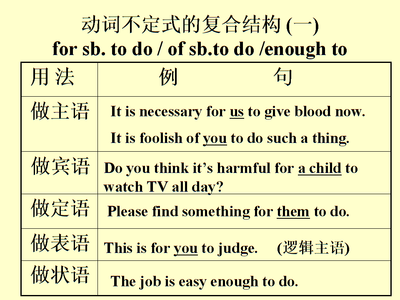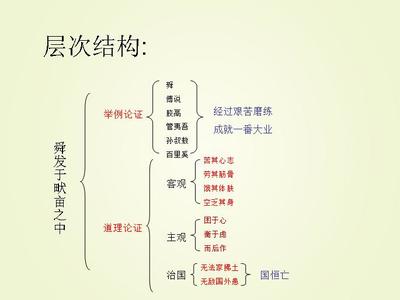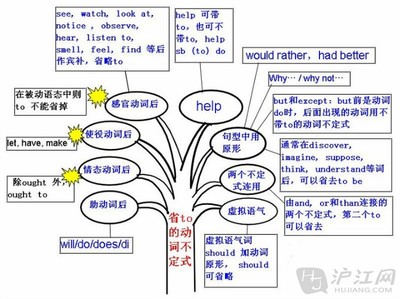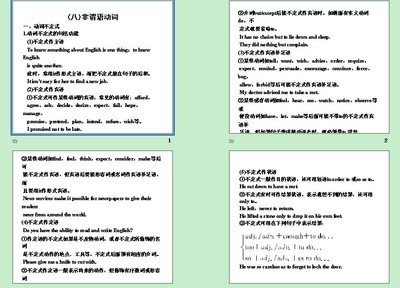(一)如果不定式所表示的动作与主要谓语所表示的动作(状态)同时(或几乎同时)发生或发生在主要谓语之后,那么用不定式的一般形式
He received a warm welcome from the Australians and from his family who had flown there to meet him.
In 1967, he arrived back in England, where a quarter of a million people were waiting to welcome him.
After all, eighty was a special birthday, another decade lived or endured just as you chose to look at it.
Now suddenly she began to sob, holding herself in as if weeping were a disgrace.
(二) 如果不定式所表示的动作(状态)发生在主要谓语动词或特定的某时间之前,那么不定式就要用其完成式
She feels relaxed to have finished writing her thesis before the deadline.
The Vikings are believed _____ America.
[A] to have discovered
[B] in discovering
[C] to discover
[D] to have been discovered
The students were to _____ at the auditorium before 1:30 pm, but the lecture was cancelled at the last minute.
[A] assembled
[B] have assembled
[C] assembling
[D] be assembled
He was to _____ the new ambassador, but he fell ill.
[A] having telephoned
[B] have telephoned

[C] has telephoned
[D] telephoning
(三)不定式进行式表示主要谓语动词所表示的动作(情况)发生时,不定式所表示的动作正在发生
When he came in, I happened to be doing my experiment in the lab.
Why do you stand here? You are supposed to be working in the workshop.
(四)不定式完成进行式表示其动词所代表的动作,在主要谓语动词所代表的动作之前一直在进行
The students from the Department of Sociology are said to have been investigating the possibility of producing the new product.
They are quite happy to have been cooperating harmoniously with us till now.
不定式完成式具有哪些句法功能
不定式完成式所表的动作发生在谓语动词之前,它在句子中可以用作以下句子成分:
一、用作主语。如:
To have made the same mistake twice was unforgivable. 两次犯同样的错误是不可原谅的。
To have told my secret would have given me away. 要是讲出了我的秘密就是把我自己出卖了。
二、用作表语。如:
He seems to have been sick. 他好像生病了。
I was to have left yesterday. 我本来打算昨天出发的。
No harm seems to have been done. 似乎没有造成损失。
三、用作宾语。如:
He claimed to have reached the top of the mountain. 他声称已攀上那座山的顶峰。
By 1992,he hopes to have opened a branch overseas. 到1992年,他希望能在海外开一分店。
四、用作定语。如:
There is no need to have bought a new pair of shoes for me. 没有必要给我买一双新鞋。
She’s the only scientist to have won three Nobel prizes. 她是惟一得过3次诺贝尔奖的科学家。
She was the first woman to have been elected to such a post. 她是第一个被选到这个职位的妇女。
五、用作状语。如:
You’re far too clever to have done that. 你太聪明了不会这样做。
He is too young to have seen the old society. 他太年轻,没有见过旧社会。
六、用作宾补。如:
I believe it to have been a mistake. 我认为这一直就是错的。
These letters show him to have been a lovable character. 这些信表明他是一个可爱的人物。
His record shows him to have worked hard at school. 他的成绩单说明他在学校很用功。
七、用作主补。如:
He was later discovered to have been a spy. 后来发现他原来是间谍(www.hxen.com)。
The game was originally scheduled to have taken place in Rome. 这场球赛原本定在罗马举行。
不定式的进行式可用作哪些成分
不定式进行式表示正在进行的与谓语动词同时发生的动作,它在句子中可以用作以下成分
一、用作主语。如:
It’s nice to be sitting here with you. 和你一起坐在这儿真好。
Just to be doing something was a help. 做点事是有益处的。
二、用作表语。如:
He seems to be saying something. 他似乎在说什么。
Things seem to be going on smoothly. 似乎一切都很顺利。
He seems to be following us. 他似乎在跟着我们。
三、用作宾语。如:
You won’t want to be washing at this time of night. 夜里这时候你不要洗澡。
I hope to be staying with you. 我希望和你住在一起。
四、用作定语。如:
You’ve no need to be fearing. 你没有必要害怕。
Well, it’s time to be making for home. 好,是回家的时候了。
五、用作状语。如:
You are lucky to be going by air. 你挺幸运的,能乘飞机走。
You are too young to be meeting young men. 你太小,不能交男朋友。
六、用作宾补。如:
Let’s be moving, we’re wasting time. 我们走吧,我们在浪费时间。
They thought her to be working in the library. 他们以为她在图书馆学习。
七、用作主补。如:
He believed herto be telling the truth. 他相信她讲的是真话。
He is believed to be going to the U. S. A. 据信他正在前往美国。
He is thought to be hiding in the woods. 人们认为他躲在林子里。
动词不定式的时态
动词不定式有一般式、进行式、完成式、完成进行式四种时态变化形式,一般式和完成式有被动语态变化形式。
动词不定式的时态是以句中谓语动词的时间为依据的,具体表现在:
1)不定式的一般式表示的动作或状态通常发生在谓语动作之后或同时发生。例如:
My parents have made plans to spend their holidays in Hainan next week. (to spend发生在made plans之后)
2)不定式的进行式表示其动作正在进行,与谓语动词发生的动作同时进行。例如:
When her parents came back last night, she happened to be doing her homework.
3)不定式的完成式表达下列意义:
(1)不定式的完成式表示的动作或状态通常发生在谓语动作之前。例如:
They are said to have just finished cleaning their bedrooms. (to have just finished发生在they are said所表示的时间之前)
(2)不定式的完成式用在intended, expected, meant, hoped, promised, planned, wished, thought, desired, was, were等词后,表示未曾实现的愿望、期待、想法、打算或计划等。to have+过去分词表示动作,to have been表示状态。例如:
I meant to have dropped in at your office. (但没来)
(3)用在seem, appear, think, consider, believe等后,表示动作先于另一个动作发生。例如:
I seem to have met her at a party before. (met在seem之前发生)
(4)在should like或would like后用不定式完成式表示没有实现的愿望。例如:
I would like to have seen her expression when she heard the news. (但没有看到)
4)不定式的完成进行式表示动作在谓语动作之前发生,而且一直进行着。例如:
He looked too young to have been traveling to several countries.
他看上去太年轻,不像已经到过好几个国家的人。
2. 动词不定式的被动语态
在不定式中,如果不定式的逻辑主语是不定式动作的执行者时,不定式要用主动语态;如果不定式的逻辑主语是不定式动作的承受者,不定式用被动语态。试比较:
The teacher asked the students to go out for some fresh air. (主动式)
The celebrations have to be put off because of the stormy weather. (被动式)
难点一、形式上主动,意义上被动的不定式
1. 在there be+主语中,不定式用作定语修饰名词或代词,并同所修饰的名词或代词是逻辑上的动宾关系。例如:
There is no money to buy such useless things.
There are a lot of trees to plant.
2. 在“名词(代词)+be easy(difficult, fit等形容词)+不定式结构”中,有时尽管主语是动作的承受者,不定式在意义上是被动,形式上却是主动,这时可以看成省略了动词逻辑主语for us, for me, for you等。例如:The problem is not easy to work out.
The new student is hard to get along with.
3. 如果不定式的逻辑主语是不定式动作的执行者,不定式和它所修饰的名词虽然在逻辑上有动宾关系,也必须用主动语态,因为逻辑主语跟不定式的关系更为直接。例如:
The people there have little to eat or use.
分析:句子主语The people在逻辑上是不定式to eat or use动作的执行者,不定式to eat or use和它修饰的名词little在逻辑上是动宾关系,用主动形式表示被动意义。
The old man has a lot to show off.
分析:句子主语the old man在逻辑上是不定式to show off动作的执行者,不定式to show off和它修饰的名词a lot在逻辑上是动宾关系,用主动形式表示被动意义。
4. 在too…to和enough to结构中,不定式可以用主动语态表示被动意义。例如:
The suitcase is too heavy to carry.
The glass necklace is cheap enough to buy.
5. blame的不定式作表语时,用主动语态表示被动的意义,含义不同。例如:
As the accident is so serious that some leaders are to blame. (=you were in fault你应负责任)
6. something, little, what, much, a great deal to do等作句子主语,作表语时,不定式可用主动语态表示被动意义。例如:
The couple have just come back from the holiday, so a lot of house- work remains to do.
What is to do tonight?
7. to let表示“出租”,作表语时,可用“to be let”形式,但含义有些差别。例如:
The empty house is to let. 此房出租。(从房屋主人的立场讲话,由房子主人亲自向租房人说或登出广告)
The empty house is to be let. (从房屋本身来说,代理人向租房人讲话)
 爱华网
爱华网



